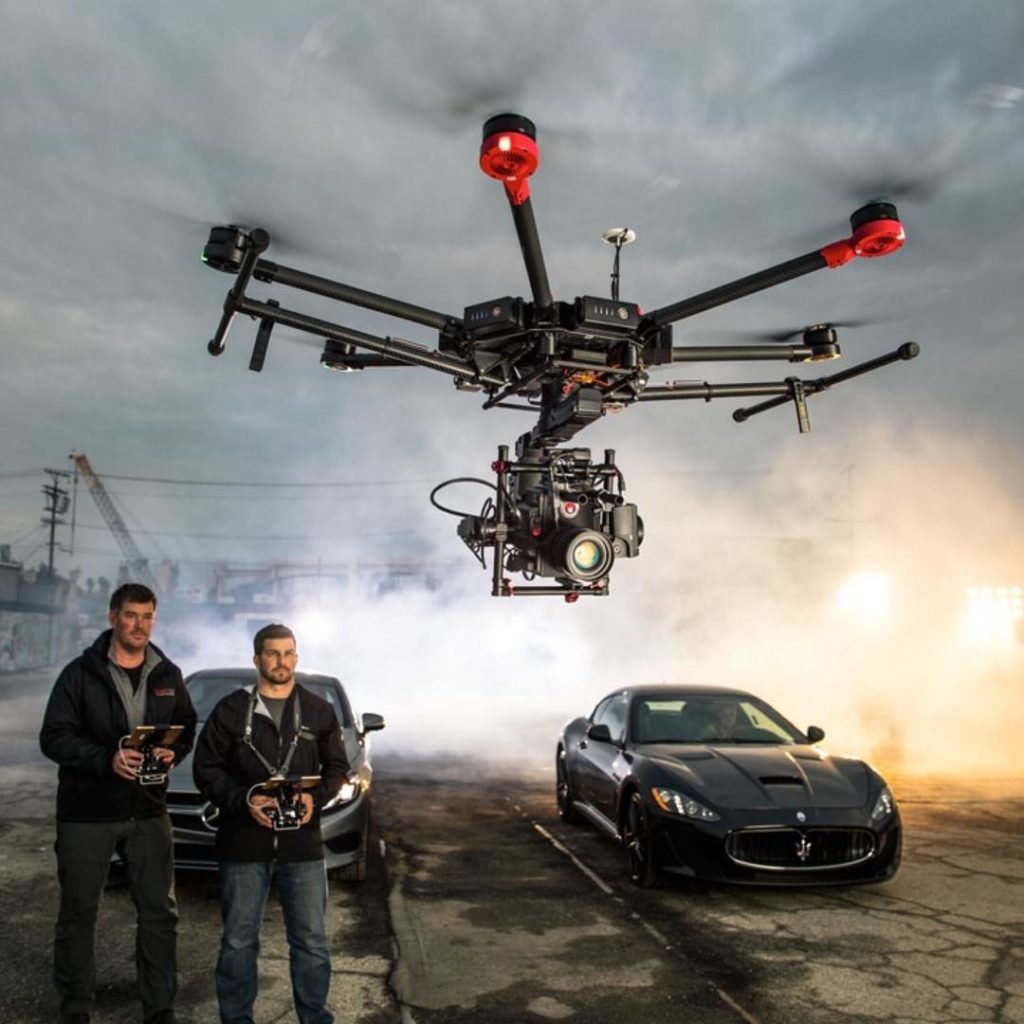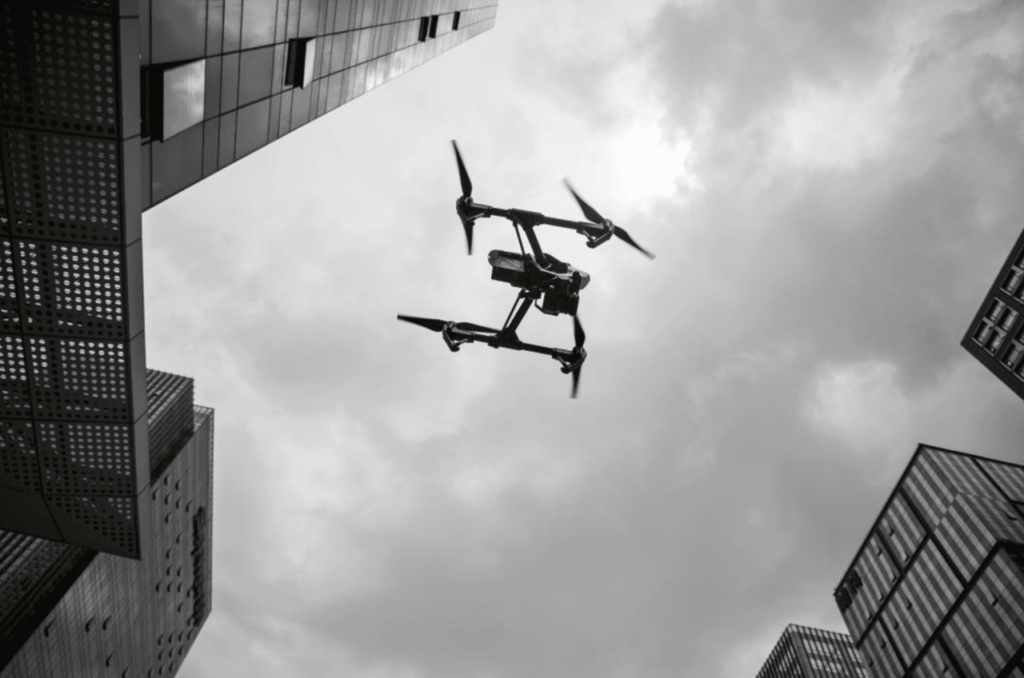As consumer drones become more and more popular, aerial security services are having to scale up protection to fight against the threat from above. Whether it’s drone delivery where there certainly shouldn’t be any, industrial espionage, or aerial trespassing, companies and individuals are increasingly searching for ways to deter rogue drone pilots and protect their property. This is the emerging world of anti-drone technology.
When you discover the existence of security companies investing heavily in anti-drone technology, the first question you might consider is ‘why?’ Drones are only used for aerial photography, right? And pilots that do get into trouble by flying in the wrong place don’t usually realize they’re up to no good? These two assumptions are slowly being challenged by events around the world: consumer drones are increasingly being used for malevolent reasons.
And it makes sense when you think about it. Consumer models from DJI and the like are being widely used for commercial purposes, from cinematography to aerial inspection and agriculture. So it was only a matter of time before the same technology was applied to criminal activity.

In the UK and the US drones have been discovered delivering drugs and mobile phones directly into prisons from above; they have illegally flown over and disrupted large sporting events; countless near misses have been reported between drones and larger aircraft, suggesting that a reckless minority of recreational pilots are breaking rules with regards to altitude and no-fly zones. The potential for malicious intent goes on:
Imagine the following scenario: a drone flies onto a company’s property and lands unnoticed in a concealed spot. It is fitted with an unsecured wi-fi hotspot that can accidentally be used by employees, allowing for the unwitting disclosure of sensitive data for days on end. Or imagine an automobile company testing a new release of a car, or the set of a movie hiding valuable plot lines when a drone enters its space and captures spoilers, then releasing them to the public. – Friederike Nielsen, Dedrone
All of the above are very realistic possibilities. In fact, plenty of them have happened already.
That’s where drone security companies come in, with specialized equipment to defend areas from aerial espionage, deter, track and intercept rogue pilots, and compile evidence to secure eventual convictions.
We spoke exclusively with Richard Gill, a former soldier who has founded the UK’s first complete drone security business – Drone Defence – to find out some more about the growing anti-drone/aerial defense industry.
First of all, it has to be said that Gill’s anti-drone tendencies don’t come from an irrational hatred of all things aerial. In fact, he was behind the controls for a record-breaking quadcopter flight across the English Channel earlier this year. As a result, he’s in a unique position to both understand and mitigate against the malicious potential of drone technology.
To counter rogue and malicious pilots, Drone Defence offer everything from expert teams on the ground to airspace monitoring, a net gun and the ‘Dynopis E1000MP’ – a portable electronic counter measure (ECM) device that jams the signal between pilot and drone.

To begin with, we asked Richard Gill about how leglislation regarding consumer and commercial flight has impacted his business.
“The people who wish to do harm with drones largely ignore the legislation surrounding their use,” he said.
“I aim to prevent them from carrying out their tasks. There are some legislative challenges associated with certain aspects of our technology, but we are working hard to mitigate them. In time I am confident that we will find a way to help organizations protect themselves without breaking the rules ourselves.”
Would it be fair to say that the majority of drone ‘incidents’ are caused by amateur pilots unaware that they are breaking the rules and generally not flying with any malicious intent? Not in the eyes of Gill.
“I would disagree,” he said.
“The people using drones to smuggle drugs into prisons are fully aware of what they are doing and this is a chronic issue around the world. We hear reports almost daily of drones being used by paparazzi to spy on people while on their super yachts, and a lot of evidence has been seen of terrorists using commercial drones in Iraq and Syria. My honest belief is that the cat is out of the bag now and we will see more and more drone-related nefarious activity.”
My honest belief is that the cat is out of the bag now. We will see more and more drone-related nefarious activity.” – Richard Gill, Drone Defence
We also asked Gill about his thoughts on the future of the anti-drone industry. What changes does he anticipate in the coming years in terms of consumer drones, event security and malicious pilots?
“I believe we have had the revolution in commercial drone technology. Now we are going into the evolution stage, where drones will become incrementally better. Their payload capacity and endurance will increase, cameras and video feeds will improve and individual components will become more reliable. DJI really have paved the way in delivering this technology, but their success will drive other manufacturers to emulate their technology.”
The suggestion is that increasingly easy-to-use, higher-tech drones will make it even easier for criminals to set off on malicious missions from above. Fortunately, it doesn’t look like aerial trespassers and prison delivery pilots are going to have things all their own way. Aside from Drone Defence, there are plenty of security companies beginning to set up in the anti-drone space around the world, such as Dedrone and Blighter.
What are your thoughts on anti-drone technology making its way into the foray? Do you feel it’s needed? We’d love to hear your comments below.
